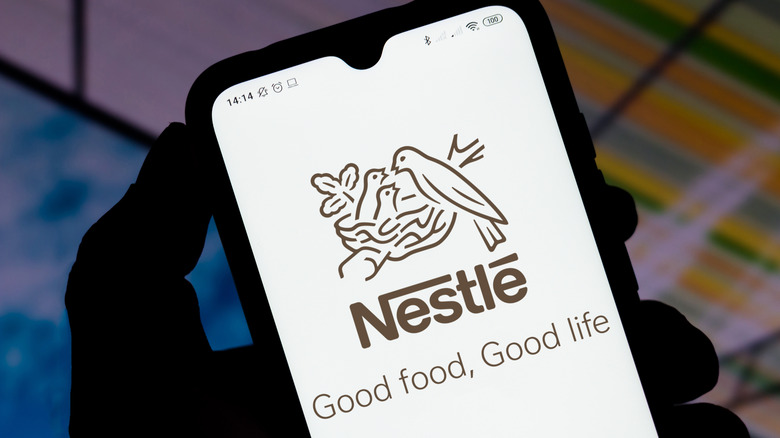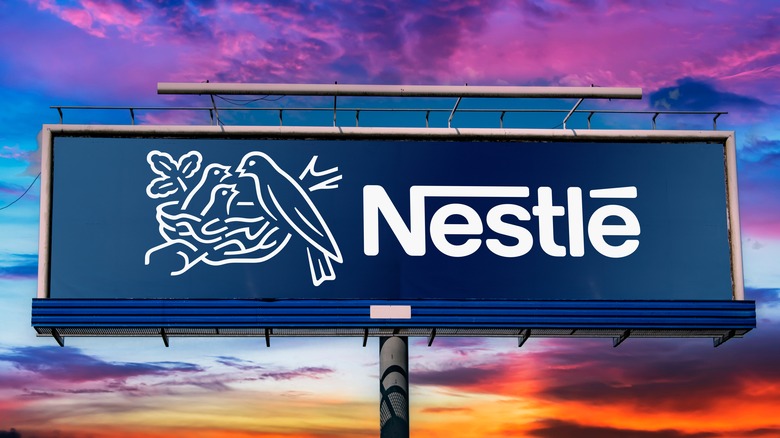Nestlé Promises More Nutritional 'Transparency' After Investor Pressure
When you open your pantry (or refrigerator, or freezer), there's probably a good chance more than one of the products living inside it is made by one of the world's biggest food brands, Nestlé. There are over 2,000 household-name brands in Nestlé's portfolio, including Gerber baby food, Perrier, Nesquik, Cheerios, KitKat, DiGiorno frozen pizza, Carnation, Coffee Mate, Stouffer's, Hӓagen-Dazs, and more. The company is even big in the dog food world with the brand Purina. Now, the food giant wants to crank out the products consumers know and love but while moving in a more health-conscious direction.
Earlier this week, Nestlé committed to sharing more detailed information about the nutritional value of its products starting in 2023, via Just Food. The change is motivated by pressure from investors, who reportedly want to revamp Nestlé's extensive portfolio with a brand voice that's more health-centric.
In a statement, the company commented, "These commitments build on the belief that transparency is key to trust." Moving forward, Nestlé says it will use Australia and New Zealand's Health Star Rating system as a model to gauge the nutrition of its products. The Health Star Rating gives individual products a composite score between ½ and five, taking into account the saturated fats, sugars, sodium, fiber, and total estimated energy provided. However, while investors might be pleased about the announcement, not everyone is quite as thrilled.
Taking responsibility for nutritional value
U.K.-based investment analyst group ShareAction says Nestlé's pledge to be more transparent isn't enough, per Just Food. Because the company hasn't made any definitive "targets" to increase the sale of healthier products, ShareAction argues, Nestlé's promises are just talk, demonstrating a desire to appease investors rather than to make lasting, impactful changes toward nutritional quality. But, this discourse raises some questions: Do or should food retailers have a responsibility to produce healthy foods? Or, is it the responsibility of consumers to decide for themselves what they choose to eat? Either way, transparent advertising seems like a welcome place to start while a perceived lack of transparency can lead to tension.
In June, energy bar brand Clif faced backlash when critics argued that its advertising was misleading. Clif Bars, they said, were wrong to be marketed as a "nutrition" bar when they contain around 19 grams of added sugar, per Food Navigator U.S.A. The debate became a class-action lawsuit that spanned three years and ended in a $10.5 million settlement. While the stakes are admittedly leagues lower for Nestlé right now, the debate serves as an important reminder about the importance of mindful consumerism in the grocery aisle.

